- Home
- R. Barri Flowers
The Jury Has Spoken
The Jury Has Spoken Read online
THE JURY HAS SPOKEN
A Legal Thriller Short Story
By R. Barri Flowers
The Jury Has Spoken is a work of fiction. Names, characters, places, and incidents are either the product of the author's imagination or are used fictitiously. Any resemblance to actual events, locales, business establishments, or persons, living or dead, is entirely coincidental.
Copyright 2011 by R. Barri Flowers
All rights reserved.
Cover Image Copyright Gina Sanders, 2011
Used under license from Shutterstock.com
ALSO BY R. BARRI FLOWERS
NOVELS
State's Evidence (A Beverly Mendoza Legal Thriller)
Persuasive Evidence (A Jordan La Fontaine Legal Thriller)
Justice Served (A Barkley and Parker Mystery)
Murder in Maui (A Leila Kahana Mystery)
Dark Streets of Whitechapel (A Jack the Ripper Mystery)
Dead in the Rose City (A Dean Drake Mystery)
Killer in the Woods (A Psychological Thriller)
Ghost Girl in Shadow Bay (A Young Adult Haunted House Mystery)
Danger in Time (A Young Adult Time Travel Mystery)
SHORT STORIES
Gone But Never Forgotten
The Phone Call
Vandals
DEDICATION
To fans of my crime, mystery, and thriller novels
* * *
The four men and two women sat around the table, a nearly empty bottle of bourbon and half-filled bottles of red and white wine between them, along with a bowl overflowing with cash. A smooth jazz CD was playing in the background, but no one was paying attention to it.
"Guilty as charged—murder in the first degree," said prosecutor Jay Penchant. "I had the jury eating right out of my hands."
"Hell, if they'd known where your hands had been, they would've thought twice," remarked Judge Walter Armstrong.
Penchant laughed humorlessly. "Yeah right, Your Honor. You'd know something about that, wouldn't you?"
"Let's just keep our focus on the case," defense attorney Lisa Hamilton said.
"Yeah, she's right," said detective Matt McDonald. "The jury has spoken. Isn't that the bottom line?"
"Of course," the judge said, sipping bourbon. "I'm just trying to keep things light."
"We all are," said assistant district attorney Deborah Knight. "None of us can afford to take this too seriously, or we'd all go nuts."
"Amen to that," said defense attorney Scott Valdez, lifting his drink.
Prosecutor Penchant smoothed a thick brow. "Now that we all seem to be on the same page, let's take it from the top on how we got to this point. And, more importantly, where do we go from here?"
"Okay," said McDonald, flipping through a notepad. "Let's see, we've got Thomas Baker, forty-seven, arrested for murdering his thirty-eight-year-old wife Cassandra."
"Cause of death?" Penchant asked.
"Blunt force trauma to the head."
"And the method used to commit the murder?"
"He used one of his golf clubs and really went to work on her," McDonald said.
ADA Knight made a face. "Sounds gruesome."
"You've got that right," the detective said. "Not even a belated attempt to call 911 could save her from the onslaught."
Judge Armstrong cleared his throat and said, "As I recall, the DNA evidence was overwhelming. His prints were all over the murder weapon and the victim's blood was all over him."
"Not so fast," argued Hamilton. "The DNA, while certainly powerful, was hardly overwhelming. The defendant never denied he was at the crime scene, especially since he lived there with his wife. But nothing was presented to contradict his assertion that someone conked him on the head and left him in a pool of the victim's blood."
"Ahh, but that's where you're mistaken, Counselor," said the prosecutor. "We had an expert witness come in and testify that the superficial bump on the back of the defendant's head was most likely self-inflicted to make it look like someone else was there."
"Yes, and our expert disagreed," Valdez stated sharply. "According to her, it was highly unlikely that Mr. Baker knocked himself out; supporting the view that he was struck from behind as he stated, rendering him unconscious and conveniently caught red-handed, no pun intended."
"Assuming that's true, and it's a big assumption," said ADA Knight, "it still doesn't explain how the defendant's prints ended up on the murder weapon that was left embedded in his wife's skull."
"That's an easy one," said McDonald. "Baker was an avid golfer, and a damned good one by most accounts. As such, you would expect to find his prints on clubs he owned. Of course, the fact that no other prints were found on the murder weapon makes it difficult to believe that it was used by anyone other than the defendant to bash his wife's head in."
Attorney Hamilton scoffed. "Sounds just a little too pat for me. Thomas Baker, a Harvard grad, decides to kill his wife by beating her to death with his own golf club that has his fingerprints on it, leaving no doubt that he did it. Then he concocts the hit on the head story as his rationale for being in the wrong place at the worst possible time. Give me a break." She rolled her eyes. "That's either the lamest excuse ever or he was telling the absolute truth."
"Sounds like a good closing argument, Counselor," said Prosecutor Penchant. "But you've neglected to include something very important. Thankfully, the jury took this into consideration when rendering their verdict. The defendant had more than one reason for wanting his wife dead."
"Do tell," Judge Armstrong said eagerly.
Penchant tasted his wine as he looked around the table. "For starters, the Mrs. had just filed for divorce. Then he discovered that she'd been having an affair with one of his colleagues. Talk about the ultimate betrayal. Oh, and did I forget to mention that Thomas Baker was having his own affair and there was some indication that he wanted his wife out of the picture? Since he had a million dollar life insurance policy on her, she was worth far more to him dead than alive."
"Well, I'm sure we'd all agree that those things certainly worked against the defendant," the judge said.
"Yes, but that doesn't mean he killed her," Valdez said. "If you're just looking solely at money as the motive, Baker wasn't exactly poor. His advertising firm is one of the most successful in the city. A million bucks was like a drop in the bucket for him. Not to mention he and his wife each had million dollar life insurance policies long before the crime occurred, which would seem to debunk that theory."
ADA Knight scoffed and stared at him in disbelief. "Were we in the same courtroom? As was presented into evidence, Thomas Baker's business was failing and he was deeply in debt. Collecting a million dollars while making sure his wife didn't divorce him would go a long way toward solving both of his problems."
"Come on," Valdez said. "Some of the witnesses we put on the stand testified that, if anything, Baker wanted out of the marriage as much if not more than his wife. So spare me with your obsessed, jealous husband motivation." The defense attorney downed the rest of his wine. "With respect to him being heavily in debt as a motive for murder, let's not forget that Baker had a business partner who had the same motivation for killing the victim, and then some. Need I remind you that Cassandra Baker was having an affair with John Horn, who testified to this effect as a hostile witness? Since he was married, too—never mind that his wife has since filed for divorce—and had no desire to give up his wife's money to prop up the business, Horn could have murdered his lover if she'd threatened to tell his wife what was going on, taking away his piggy bank. The man had access to the house and knew Baker's schedule as well as anyone if he'd wanted to set it up."
"But Horn had an alibi," ADA Knight said.
>
"Yeah, right," attorney Hamilton rolled her eyes. "Horn claimed he overslept in his car. Only no one could vouch for that, except a friendly neighbor who claimed he remembered seeing someone in the car."
"But Horn's prints weren't found on the murder weapon," ADA Knight countered.
Hamilton snickered. "Uh, excuse me, but have you ever heard of gloves? And let's not forget that Horn's fingerprints and DNA were found at the house, since he was Cassandra's lover and possible killer; as well as other prints and DNA that have not been identified, including the bloody shoe prints leading to the back door."
Prosecutor Penchant frowned. "I don't think we should make too much out of something that turned out to be a non issue at the end of the day. It's been established that most of the unidentifiable prints and DNA likely came from people who were cleared as suspects. As for the bloody shoe prints, our expert testified that the defendant could have deliberately dragged his feet in a manner to make the shoe prints seem half a size larger than the shoes he wore that night."
"I think we should agree to disagree on this one," attorney Hamilton said.
"Fair enough," Penchant said and finished off his drink.
Detective McDonald looked around the table. "I admit that I'm still intrigued over the possibility that Thomas Baker's lover, Stella Sabatini, got away with murder. She admitted that she wanted more than anything to become the new Mrs. Baker. And, with her shaky past, including drug addiction and stalking, who's to say that she didn't decide to go after Cassandra Baker herself?"
"And set up the lover she wanted to be with?" Judge Armstrong asked, shaking his head. "You'll have to do better than that."
"All right, so it's a stretch," McDonald admitted. "But maybe Stella got tired of waiting for Baker, who obviously had no intention of marrying her. You know what they say about a woman scorned. What better way to pay the bastard back than by killing his wife and setting him up to take the fall?"
The judge laughed. "You've been reading way too many novels, Detective."
"Hey, I'm just tossing out a hypothetical," he said. "We all know nothing's set in stone, even after a verdict has been handed down."
"You're preaching to the choir, McDonald," Prosecutor Penchant said. "Yeah, I'm sure our friends here will file the customary appeals and all the what-ifs can be bandied about by the press. But this time the public appears to be squarely on our side. Thomas Baker beat his wife to death, whatever his reasons, and now he's paying the price by spending the rest of his miserable life in prison. End of story."
"Not quite," said attorney Hamilton. "Sometimes the truth has a way of coming out, even long after the fact."
"Are you talking about the intruder theory you tried unsuccessfully to sell to the jury?" ADA Knight teased. "Uh, excuse me, but I'm afraid there's no one-armed man to come to your client's rescue."
"I wouldn't be too sure about that," Hamilton countered. "Thomas Baker deserved a better fate. Yeah, he was no angel by any stretch of the imagination. But he's not the vindictive, cold-blooded killer you made him out to be either."
"Sounds like you're a sore loser, Counselor," she said. "Get over it. You took your best shot and we still won the jury over. Better luck next time."
"And hopefully your luck won't be so damned good next time," attorney Valdez snorted.
Judge Armstrong slammed his fist onto the table as if it were a gavel. "Order in the court, friends. Everyone played the game fair and square and it's over." He sipped his drink. "As usual, we each put up twenty grand on how long it would take the jury to render a verdict. They did so in exactly five hours. ADA Knight, you predicted the time right on the money, so to speak. As such, the pot is yours. Congratulations!"
He lifted his glass in toast and the others did the same, echoing his congrats.
The judge slid the bowl containing one hundred and twenty thousand dollars to Deborah Knight.
"Sometimes one can be lucky and good," she said, scooping up the money and tucking it in her purse.
"I sense a first class trip to Hawaii or Jamaica," Lisa Hamilton said enviously.
"Close. Try the Cayman Islands."
"They all sound pretty damn good to me," said McDonald.
"I'll bet they do," quipped Penchant. "Maybe your day to win will come soon."
"One can only hope," McDonald said.
"That's why we're all here, isn't it?" Valdez asked. "We're all hoping to make our dreams come true with a little extra on the side."
"Absolutely," said Judge Armstrong. "Speaking of which, I think it's time to focus on our next case. Why don't you get us started, Detective?"
All eyes shifted to McDonald. He opened his briefcase.
* * *
"Our suspects are Frank and Gwendolyn Hawthorne," detective McDonald said, passing copies of their mug shots around the table. "They were arrested three weeks ago after a traffic violation revealed both were persons of interest in a string of rape/murders across the state. Nancy Majors, twenty-eight, left her job as a dental hygienist and never made it home. Her nude, battered body was found in a creek three weeks later. She'd been shot twice in the head." McDonald paused and studied his notes.
"Alexandria Dandridge, twenty-four, was abducted from a shopping mall," he continued. "Her remains were found near the side of the road that night; killed the same way. So was Connie Childress, a thirty-year-old mother of two last seen alive at a hair salon. Her body was discovered the following week in a vacant lot by runners two miles from her home. They were the first ones killed by the so-called Death Corridor Killers, but certainly not the last," he said. "We think we have the killers in custody."
"Our firm was retained by the Hawthornes," attorney Hamilton said, glancing at her partner, Scott Valdez. "We believe they're innocent, other than blowing through a stop sign. And even that will be challenged."
"The traffic violation is the least of your clients' problems," said Penchant. "As you've learned through discovery, Frank and Gwendolyn Hawthorne are in big trouble. The evidence links them to the brutal murders of at least seven local women that we know of. And I hesitate to think how many victims might be out there. At least we've saved future women from being raped and murdered by this modern day Gerald and Charlene Gallego, thanks to a head's up officer who was at the right place at the right time."
"That's pure speculation, Counselor," Valdez said tersely. "At best, you only have circumstantial evidence against our clients and no murder weapon. When you find it, you'll find the real killer or killers."
"We've already got them," insisted ADA Knight, "missing murder weapon notwithstanding. It's only a matter of going through the motions to prove it."
"And you'll get that opportunity in my courtroom," Judge Armstrong said. "Unless, of course, both sides work out a plea bargain."
"No way," Knight said. "We owe the victims' family members the full weight of the law being thrown at these two. That doesn't include being handed a soft sentence for cold-blooded serial murderers."
"We're definitely on the same page," Penchant concurred. "The DA's office isn't in the habit of tossing the defense a gift-wrapped plea to make their lives easier. Especially when it's a case we feel we can win hands down!"
"We'll see about that," said Hamilton. "And don't flatter yourself. We have no intention of depriving our clients their day in court. There will be no sacrificing Frank and Gwendolyn Hawthorne to spare the DA's office the embarrassment of trying to railroad an innocent couple."
"Then it looks like we understand each other," the judge said over his drink. "So be it. Now let's put our money where our mouths are. Unless anyone objects, the twenty thousand dollar ante stands. How long will it take the jury to reach a verdict? The person who guesses closest to the actual time wins. Ties are split. May the best man or woman walk away with the cash!"
There were no objections.
* * *
Judge Walter Armstrong showed his guests out, promising they would get together again soon.
He we
nt back to the dining room, finished off his bourbon, and refilled the glass. He took it with him to his bedroom on the second floor.
Walter opened the closet door in his bedroom and grabbed a box off the top shelf. He lifted the lid and removed a plastic bag containing a pair of bloody shoes, gloves, and wooden bookend. Walter stared dolefully at the items, thinking back to that fateful day eleven months ago...
It was a quarter past ten on a Monday night when he arrived at the house. Her BMW was in the driveway. He walked past it to the back of the house, recognizing discretion was of utmost importance.
Wearing gloves, he knocked twice, but there was no answer. He twisted the knob and the door opened, inviting him to come in.
In the kitchen, there was a kettle heating on the stove. A cup and saucer sat on the table. He waited for a moment, expecting her to come in.
She did not.
He turned off the burner and made his way through the house to the sunken living room. She was sitting there watching television. He admired her beauty, something he had come to appreciate from the moment he first saw her.
It was then that Walter knew he had to have Cassandra Baker.
She must have heard his shoes on the wooden floor, as her head turned in his direction.
"How did you get in here?" she asked.
"Back door. I knocked, but there was no answer, so—"
"So you decided to invite yourself in?"
"Something like that."
She stood. Barefoot, she was nearly as tall as he was. She pulled her robe around her and tied it.
"I think you should leave," she said.
He stepped closer, expecting her to back away, but she did not. "I need to see you, Cass."
"Why?"
"I miss you."
She wet her lips. "We've already been over this. What happened between us shouldn't have."
"Don't say that." He would never forget the touch of her soft skin, the taste of her lips, and making love for hours on end.

_preview.jpg) Ph.D in Murder (A Cozy Mystery Short)
Ph.D in Murder (A Cozy Mystery Short)_preview.jpg) Billy The Kid’s Wife (A Time Travel Romance Short)
Billy The Kid’s Wife (A Time Travel Romance Short)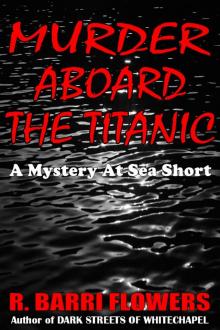 Murder Aboard the Titanic: A Mystery At Sea Short
Murder Aboard the Titanic: A Mystery At Sea Short_preview.jpg) Convinced (A Women’s Suspense Short)
Convinced (A Women’s Suspense Short)_preview.jpg) Target of a Killer (A Crime Thriller Short)
Target of a Killer (A Crime Thriller Short)_preview.jpg) The Phone Call (A Psychological Mystery Short)
The Phone Call (A Psychological Mystery Short)_preview.jpg) Vandals (A Young Adult Thriller Short Story)
Vandals (A Young Adult Thriller Short Story) Quad Squad
Quad Squad_preview.jpg) The Wrong End Of A Gun (A Noir Mystery Short)
The Wrong End Of A Gun (A Noir Mystery Short)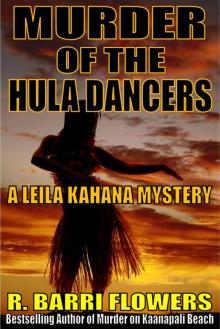 Murder of the Hula Dancers
Murder of the Hula Dancers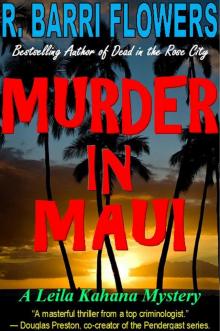 Murder in Maui
Murder in Maui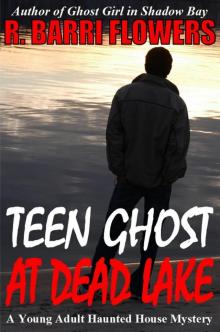 Teen Ghost at Dead Lake
Teen Ghost at Dead Lake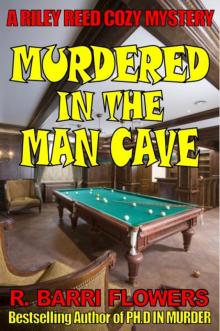 Murdered in the Man Cave (A Riley Reed Cozy Mystery)
Murdered in the Man Cave (A Riley Reed Cozy Mystery)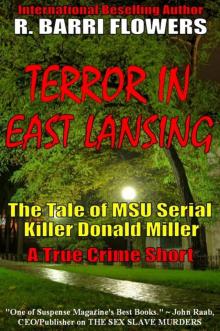 Terror in East Lansing: The Tale of MSU Serial Killer Donald Miller
Terror in East Lansing: The Tale of MSU Serial Killer Donald Miller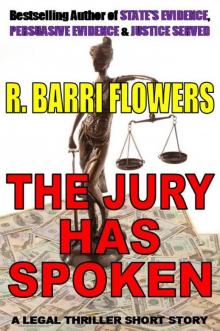 The Jury Has Spoken
The Jury Has Spoken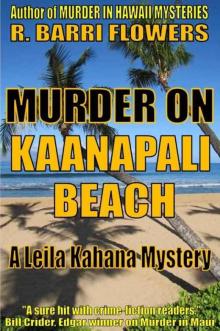 Murder on Kaanapali Beach
Murder on Kaanapali Beach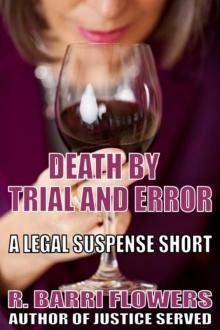 Death by Trial and Error (A Legal Suspense Short)
Death by Trial and Error (A Legal Suspense Short)